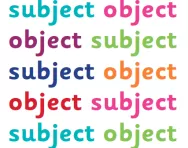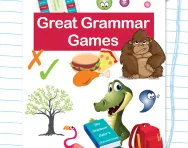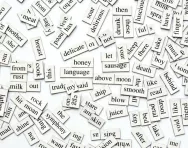Important update from TheSchoolRun
For the past 13 years, TheSchoolRun has been run by a small team of mums working from home, dedicated to providing quality educational resources to primary school parents. Unfortunately, rising supplier costs and falling revenue have made it impossible for us to continue operating, and we’ve had to make the difficult decision to close. The good news: We’ve arranged for another educational provider to take over many of our resources. These will be hosted on a new portal, where the content will be updated and expanded to support your child’s learning.
What this means for subscribers:
- Your subscription is still active, and for now, you can keep using the website as normal — just log in with your usual details to access all our articles and resources*.
- In a few months, all resources will move to the new portal. You’ll continue to have access there until your subscription ends. We’ll send you full details nearer the time.
- As a thank you for your support, we’ll also be sending you 16 primary school eBooks (worth £108.84) to download and keep.
A few changes to be aware of:
- The Learning Journey weekly email has ended, but your child’s plan will still be updated on your dashboard each Monday. Just log in to see the recommended worksheets.
- The 11+ weekly emails have now ended. We sent you all the remaining emails in the series at the end of March — please check your inbox (and spam folder) if you haven’t seen them. You can also follow the full programme here: 11+ Learning Journey.
If you have any questions, please contact us at [email protected]. Thank you for being part of our journey it’s been a privilege to support your family’s learning.
*If you need to reset your password, it will still work as usual. Please check your spam folder if the reset email doesn’t appear in your inbox.
What are transitive and intransitive verbs?

What are transitive and intransitive verbs?


Download Fantastic FREE Grammar Resources!
- Perfect Punctuation Workbook
- Grammar Games Pack
- PLUS 100s of other grammar resources
In this sentence I is the subject, cleaned is the verb and the car is the object.
This sentence gives you an example of a transitive verb. A transitive verb is one which needs to take an object in a sentence to complete its meaning. Other sentences containing transitive verbs are:
He studies French.
The above sentences have a subject (I / He), a transitive verb (love / studies) and an object (ice-cream / French).
An intransitive verb is one which does not need an object to complete its meaning. For example:
The horse galloped.
What are children taught at each stage of primary school regarding transitive and intransitive verbs?
Children are not taught about transitive and intransitive verbs at primary school, however, they are taught about subject, verb and object in preparation for the Year 6 Grammar, Punctuation and Spelling test.
Children may be given a question similar to this:
This is an example of a sentence with a transitive verb (chased), however your child does not have to explicitly state this.
What could you do to help your child at home with transitive and intransitive verbs?
If you are keen for your child to understand transitive and intransitive verbs, here are some activities you could try:
- Ask your child to go through their reading book and find some examples of sentences containing either type of verb.
- Give your child a challenge to write three sentences with transitive verbs and three sentences with intransitive verbs.
- Give them a group of words written on cards, for example: he, she, he, they, ate, weeded, sneezed, returned, the, the, garden, hamburger. Mix them all up and ask your child if they can make four sentences out of them, two with transitive verbs and two with intransitive verbs. Possible sentences are:
She weeded the garden.
He sneezed.
They returned.









